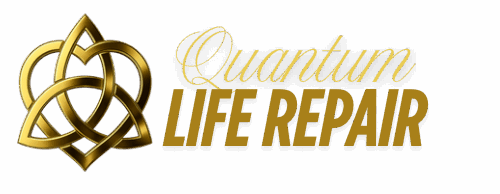Leaving a cult can be an incredibly challenging and life-altering experience. It takes immense courage to break away from a group that may have controlled and manipulated your thoughts and actions for a significant period of time. After leaving a cult, it is crucial to seek help and support to navigate the complex process of recovery and rebuilding your life. In this article, we will explore some essential steps you can take to get the help you need after leaving a cult.
Table of Contents
- Reach Out to Supportive Friends and Family
- Seek Professional Counseling
- Join Support Groups on Getting Help After Leaving a Cult
- Educate Yourself
- Take Care of Your Physical and Emotional Well-being
- Establish Boundaries After Leaving a Cult
- Consider Legal Options After Cult Extraction
- Practice Patience and Self-Reflection
- Conclusion on How to Get Help After Leaving a Cult
- FAQ: Get Help After Leaving a Cult
- About Dr. Gary Danko
- Connect with Dr. Danko
- Additional Reading
Reach Out to Supportive Friends and Family
One of the first steps towards healing and recovery is to connect with loved ones who have supported you throughout your journey. This is probably the best way to get help after leaving a cult. Cults often isolate their members from friends and family, so reaching out to those who have always cared about you can provide a sense of belonging and safety. Share your experiences with them and allow them to offer their support and understanding.
Seek Professional Counseling
Professional counseling is crucial for individuals who have left cults. Cults often employ mind control techniques that can have long-lasting effects on a person’s mental and emotional well-being. A qualified therapist or counselor experienced in cult recovery can help you process your experiences, heal from trauma, and develop healthy coping mechanisms. Many professionals call this type of help “deprogramming”.
Join Support Groups on Getting Help After Leaving a Cult
Support groups can be invaluable for individuals who have left cults. Connecting with others who have gone through similar experiences can provide a sense of validation and understanding. Look for support groups specifically tailored to cult survivors, where you can share your story, gain insights from others, and receive guidance on your journey to recovery.
Educate Yourself
Understanding the dynamics of cults and the tactics they use can be empowering and aid in your recovery process. Educate yourself about cults, their recruitment strategies, and manipulation techniques. This knowledge will help you recognize and overcome any lingering effects of the cult’s influence.
Take Care of Your Physical and Emotional Well-being
Leaving a cult can leave you feeling emotionally and physically drained. It is essential to prioritize self-care during this time. Engage in activities that bring you joy and relaxation, such as exercise, meditation, or hobbies. Surround yourself with positive influences and practice self-compassion as you rebuild your life.
Establish Boundaries After Leaving a Cult
After leaving a cult, it is crucial to establish healthy boundaries with individuals who may still be involved in the group or those who may try to manipulate or control you. Learning to say no and setting limits on what you are comfortable with is an essential part of reclaiming your autonomy and rebuilding your life.
Consider Legal Options After Cult Extraction
In some cases, cults may have engaged in illegal activities or violated your rights. It is important to consult with a legal professional to understand your options and determine if pursuing legal action is appropriate in your situation. They can guide you through the process and help you seek justice if necessary.
Practice Patience and Self-Reflection
Recovering from the trauma of leaving a cult (deprogramming) takes time. Be patient with yourself and allow yourself to grieve the losses you may have experienced. Engage in self-reflection and explore your beliefs and values, allowing yourself to grow and evolve beyond the influence of the cult.
Conclusion on How to Get Help After Leaving a Cult
Leaving a cult is a courageous step towards reclaiming your life and autonomy. Seeking help and support is vital during this challenging time. Reach out to loved ones, seek professional counseling, join support groups, and educate yourself about cults. Take care of your physical and emotional well-being, establish boundaries, and consider legal options if needed. Remember to be patient with yourself and embrace the journey of healing and self-discovery. You are not alone, and there is help available to guide you towards a brighter future.
FAQ: Get Help After Leaving a Cult
A: Leaving a cult can result in a range of psychological effects due to the intense and often manipulative environment experienced. Individuals may face anxiety, depression, feelings of isolation, loss of identity, difficulties with trust, and post-traumatic stress disorder (PTSD). Getting professional help is crucial in navigating the complex process of recovery.
A: Cult conversion syndrome refers to the psychological process through which an individual’s beliefs, behaviors, and identity are systematically changed to align with the cult’s ideologies. This syndrome is characterized by intense emotional manipulation, social isolation, and the use of cult-specific language, resulting in a diminished sense of self and autonomy.
A: Religious Trauma Syndrome (RTS) is a condition experienced by individuals who struggle with leaving a religion or cult and the trauma it can cause. Symptoms include chronic anxiety, depression, social dysfunction, and a loss of sense of safety and trust in the world.
A: Cult members may leave for various reasons, including disillusionment with the cult’s leadership or doctrine, external intervention by friends or family, or personal revelations about the manipulative nature of the group. The decision to leave is often difficult and fraught with personal risk.
A: The three main characteristics of a cult include:
✅ Charismatic Leadership: Leadership that demands loyalty, adoration, and sometimes worship.
✅ Exploitative Practices: Emotional, financial, or physical exploitation of members.
✅ Isolation: Efforts to cut off members from external influences or critical perspectives.
About Dr. Gary Danko
Dr. Gary Danko, PhD, is a renowned expert in Metaphysical Psychology and a Certified Hypnotherapist based in Clearwater, Florida. With a profound commitment to fostering wellness, Dr. Danko specializes in unlocking the human mind’s potential, guiding individuals towards a healthier, happier, and more fulfilling life. His holistic approach integrates spirituality, physical health, and mental well-being, offering a unique perspective on personal growth. Passionate about deep, meaningful conversations, Dr. Danko explores the intricacies of the human spirit and mind, providing insights that enlighten and inspire.
Connect with Dr. Danko
Are you ready to embark on a journey towards a more fulfilling life? Discover the transformative power of metaphysical psychology and hypnotherapy with Dr. Gary Danko. Schedule your Free Discovery Session today and take the first step towards unlocking your true potential. Whether you’re seeking spiritual growth, mental clarity, or physical well-being, Dr. Danko’s expertise will guide you on the path to success. Don’t miss this opportunity to transform your life. Contact Dr. Danko now for your free session and experience the change you’ve been longing for!
Additional Reading
Leaving a Cult: A Practical Guide to Reclaiming Your Life
Inside the Anatomy of a Cult: Understanding the Difficulty of Departure
Understanding Cult Recruitment Tactics: How People Get Trapped
Unlock Freedom: Cult Recovery Treatment Using Hypnosis & CBT



Add your first comment to this post
You must be logged in to post a comment.